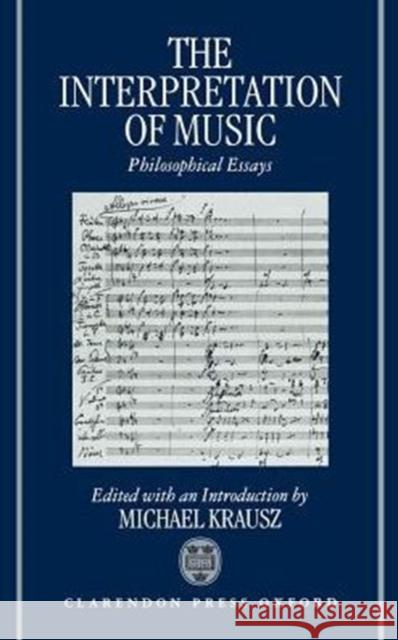The Interpretation of Music: Philosophical Essays » książka
The Interpretation of Music: Philosophical Essays
ISBN-13: 9780198239581 / Angielski / Twarda / 1993 / 304 str.
This volume looks at the symbiotic relationship between the philosophical inquiry into the presuppositions of musical interpretation and the interpretation of particular musical works by musicians. Characteristically, interpreters of music entertain philosophical views about musical interpretation. For example, an interpreter's decision whether to play one or another version of a piece, whether to use one instrument or another, whether to emphasize certain elements, depends in part upon certain convictions of a philosophical nature. An interpreter's resolution of such questions will involve views about what a musical work is--for example, whether it is fully embodied in a score, how strictly all markings should be respected, what pertinence historical research has for interpretations, and how decisive the known or reconstructed intentions of a composer may be. These nineteen previously unpublished essays address a cluster of interrelated questions about the definition, grounds, and nature of musical interpretation. The contributors investigate the aesthetic, cultural, and historical aspects of interpretation as well as fundamental distinctions such as those between a work and its interpretation, musical and non-musical phenomena, and musical meaning and linguistic meaning.











